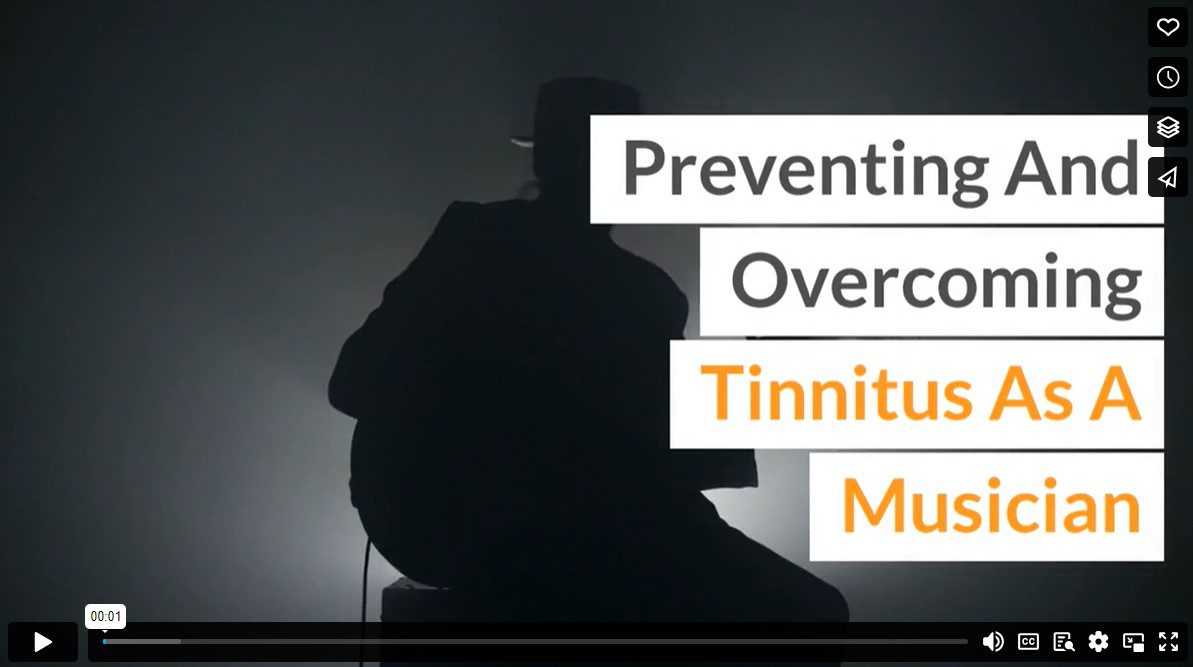By Barry Keate
Barry Keate, has lived with tinnitus over 40 years and has published 150+ research articles on numerous aspects of tinnitus. He is an expert on the condition and a well-known advocate for those with tinnitus.
 (freepik/Freepik)
(freepik/Freepik)
“I think music in itself is healing. It’s an explosive expression of humanity. It’s something we are all touched by. No matter what culture we’re from, everyone loves music.”– Billy Joel
For a musician, music is life. Nothing compares to the rush they feel when a crowd jumps to their feet in applause or fans sing along with the lyrics. It’s the musician’s art and a way to process the world around them. Music relieves stress, heals heartache, and inspires us to experience various emotions, from anger to sadness to euphoria.
While hearing loss can be frightening for anyone, it threatens a musician’s career, self-expression, and way of life. Tinnitus, often a symptom of hearing loss, can be just as frightening as the noise interferes with a musician’s ability to hear their music.
So, what can a musician do to protect their hearing? And what do they do to minimize tinnitus if they already have it?
What Causes Tinnitus In Musicians?
From the first awkward notes or drum beats to mastering their craft, musicians are surrounded by loud sounds. It doesn’t matter if it’s the squeak and squawk of a clarinet player’s first attempt to play their instrument or their debut as a solo artist; they are as close as one can get to the sound of the instrument.
Tiny hair-like nerves line the inner ear and send messages to the brain that gets interpreted as sound. Tinnitus has many causes, but the most common type for musicians is sensorineural hearing loss.
Repeated loud noises, which we hear as music, create sound waves that forcefully enter the ear canal. They can damage the tiny nerves, sending corrupted information to the brain. The brain interprets these signals in many ways but is most often described as a high-pitched ringing. Some may also experience a rushing, thumping, humming, or chiming sound that no one can hear.
Tinnitus can be constant or come and go. At times it will be low enough to ignore; other times, it’s all you can hear. There is currently no cure for tinnitus other than curing an underlying cause like high blood pressure or an ear infection. For sensorineural tinnitus, the best treatment is prevention.
How Does A Musician Protect Their Hearing And Still Hear The Music?
Earplugs
Musician-specific earplugs allow them to hear the music while lowering the volume.
Position
Sound waves travel in a straight line. Standing directly in front of speakers will do more damage than standing to the side or turning your speakers out.
Rest
Taking a break in the middle of the concert not only gives your body a break. It gives your ears a chance to recover. The same goes for rehearsals and practice sessions. Finding a quiet space between sets and after practice will give your ears a much-needed reprieve.
Volume
Watch the volume on your TV and music, especially when using headphones that pipe the sound waves directly into the ear canal.
Protection
Other daily activities like operating machinery, mowing the lawn, and similarly loud projects can add to the damage caused by music. You can use standard earplugs or over-the-ear protective headsets to block sound.
What If A Musician Already Has Tinnitus?
The good news is that tinnitus relief is possible. While there isn’t a cure for the damaged nerves as they don’t regenerate. It is also true that tinnitus can be an early warning sign, and quick action can bring positive results. Some of the therapies that have proven effective include:
- Herbal Supplements For Tinnitus: Products for tinnitus, like Arches Tinnitus FormulaⓇ, have high-grade Ginkgo Biloba, Zinc, and vitamins that improve nerve conductivity, reduce inflammation, and encourage healing if the nerves aren’t too far gone.
- Tinnitus Therapy: Various forms of meditation and thought control can help you to focus on things other than your tinnitus. Just like listening to a clock, when you focus on the clock, the ticks are louder. When you’re involved in other things, you don’t hear the clock at all.
- Hearing Aids: Tinnitus hearing loss might be mitigated by properly fitted hearing aids. There are many options that you can fine-tune for your needs.
Relief Is Possible
Protecting your hearing is critical if music is your passion or your career. Not only can hearing loss be detrimental to your job, but you’ll also miss the beauty of listening to and creating music.
If you notice unusual sounds for which there is no outside source, get your hearing checked immediately. There are health-related causes you’ll want to rule out before accepting tinnitus as a long-term diagnosis.
Once you’ve ruled out other options, even if your ENT says there’s nothing more they can do for you, there are solutions to make your symptoms manageable. New scientific discoveries happen every year, and other branches of medicine receive different training. Looking at alternative treatments for tinnitus may offer solutions that fit your needs.
Infographic
Music is a powerful expression of humanity, offering healing and emotional support. However, hearing loss poses a threat to musicians, potentially impacting their careers and self-expression. Tinnitus, often associated with hearing loss, can exacerbate these issues. To protect their hearing and manage exposure to music, musicians should adopt measures to preserve their hearing and address tinnitus if it has already manifested.

Video

